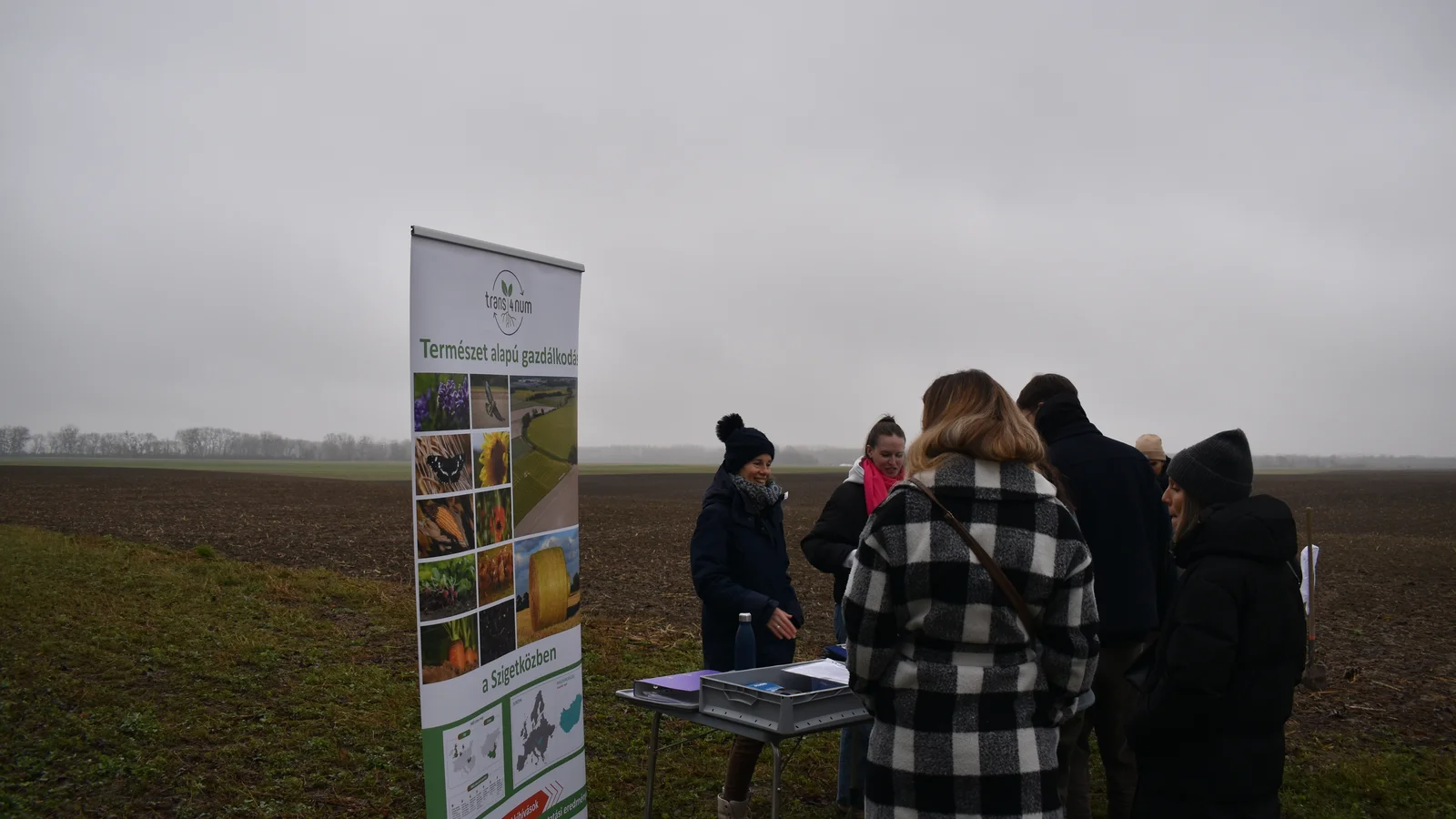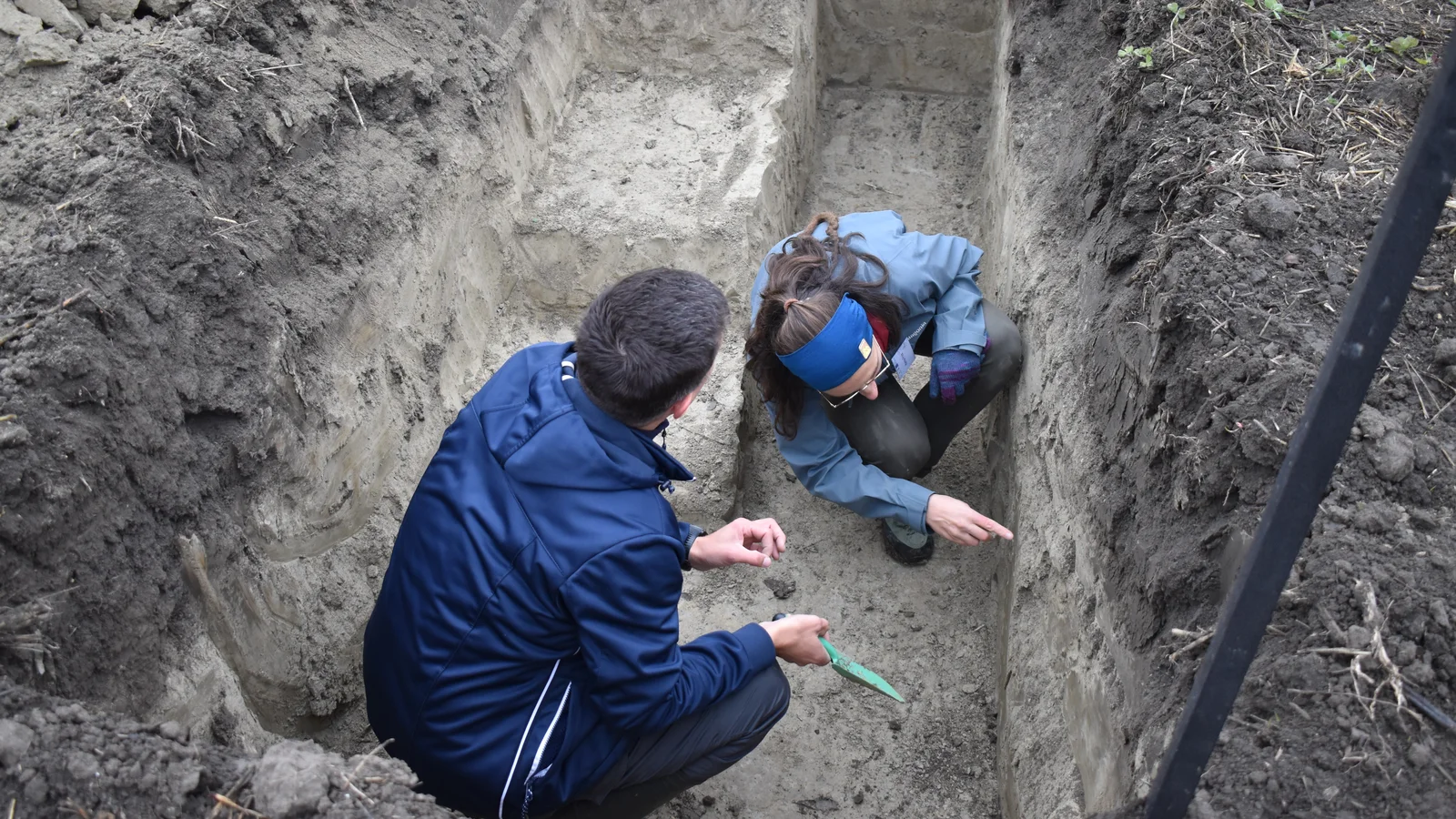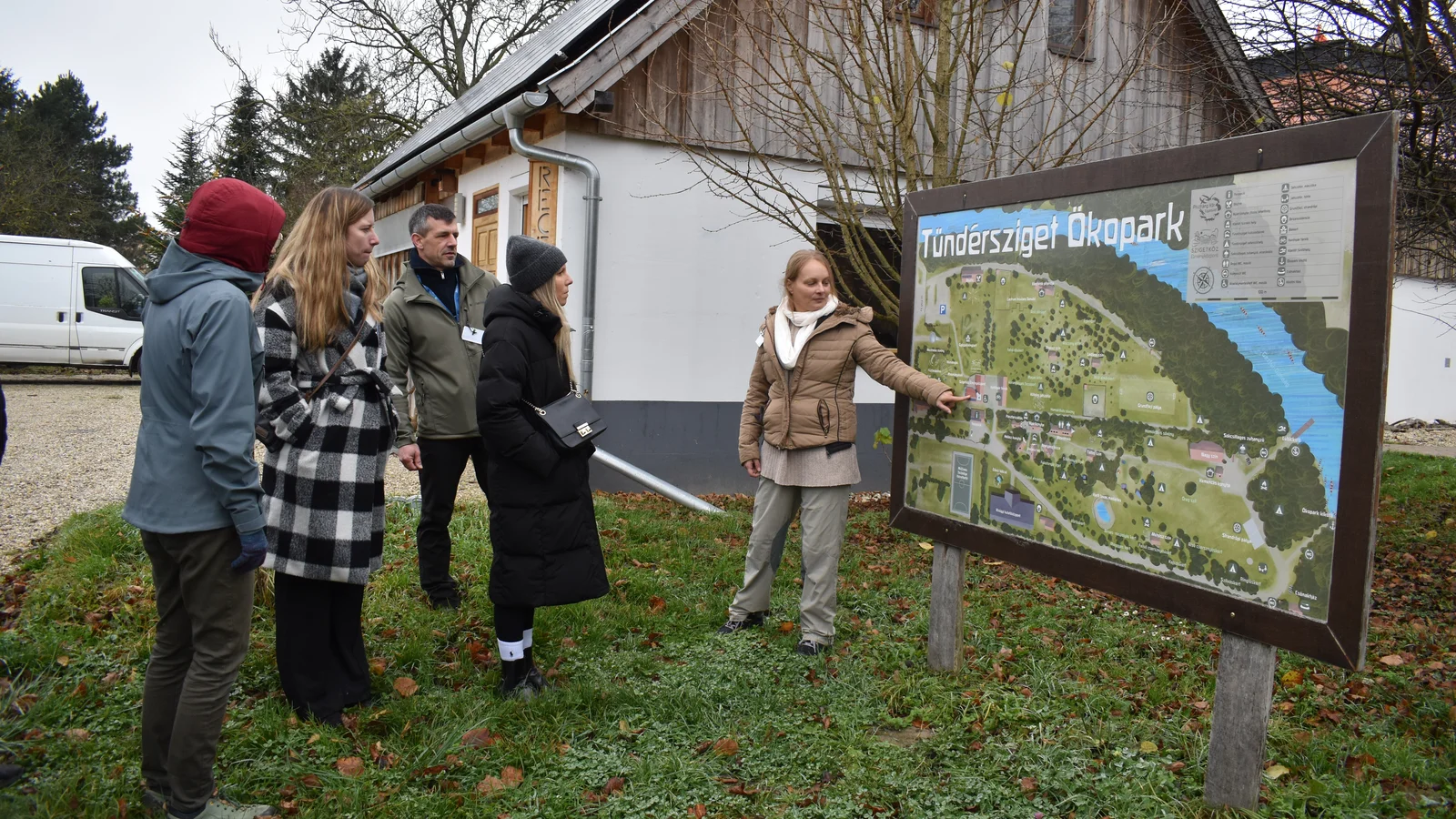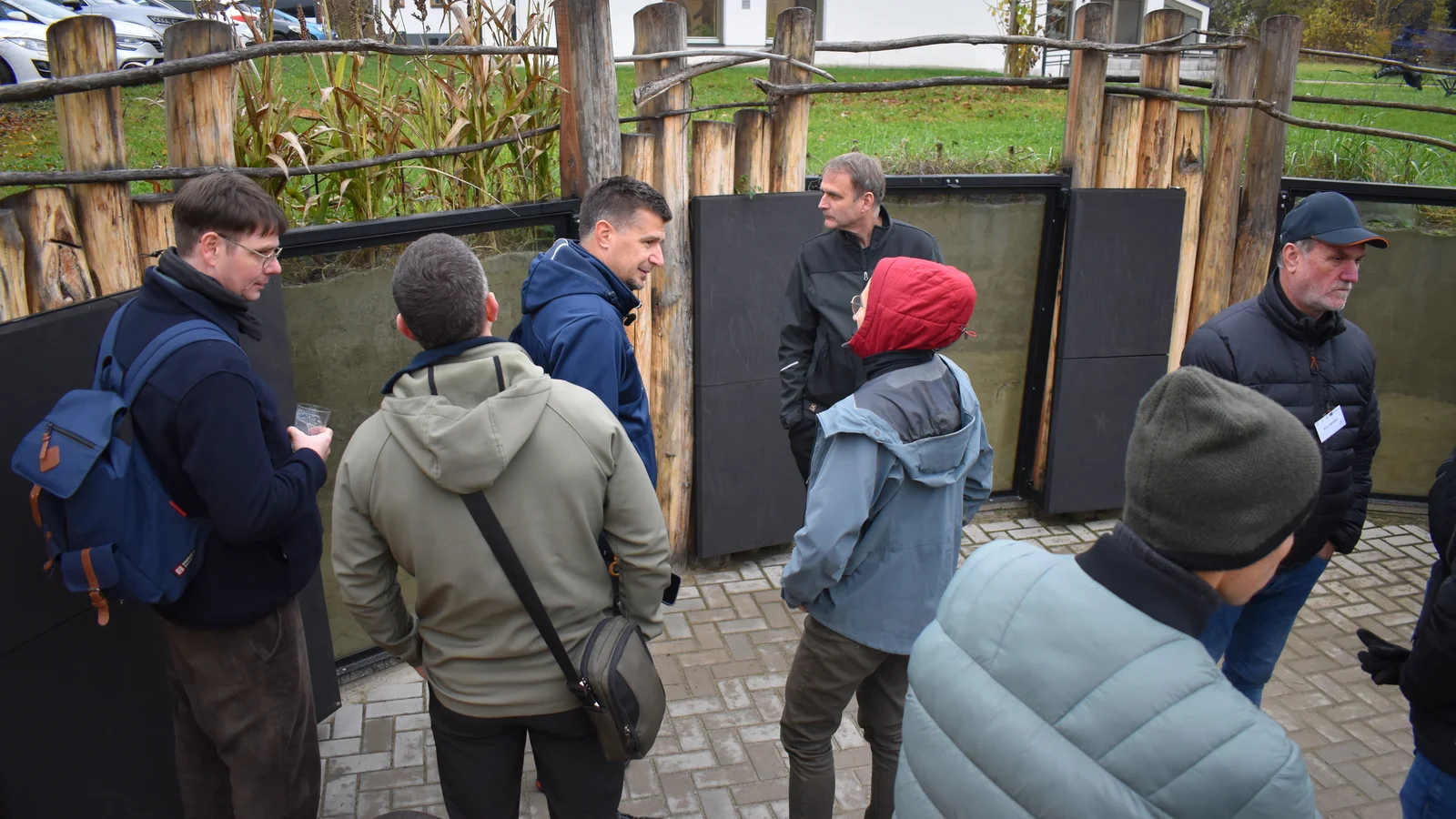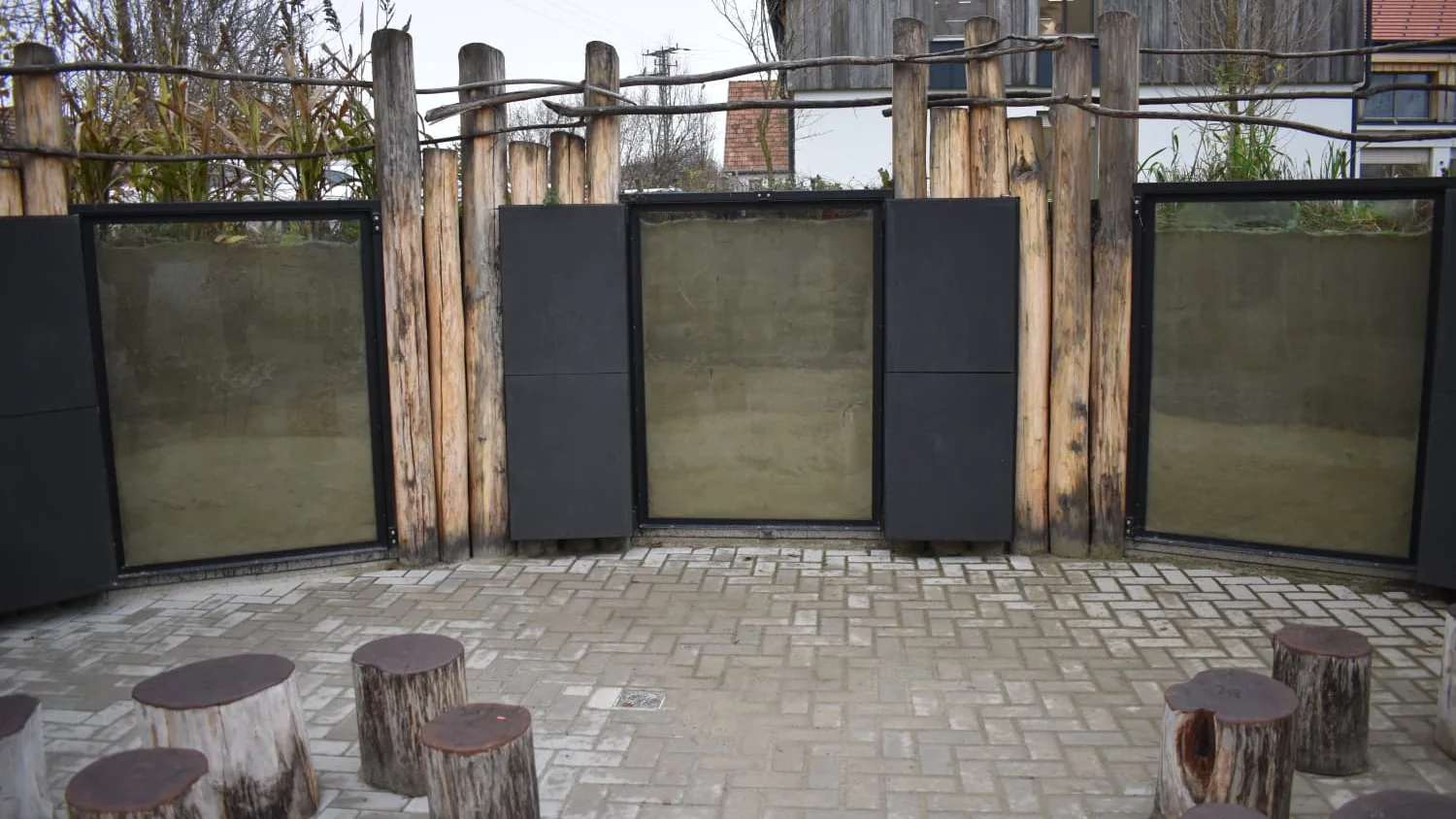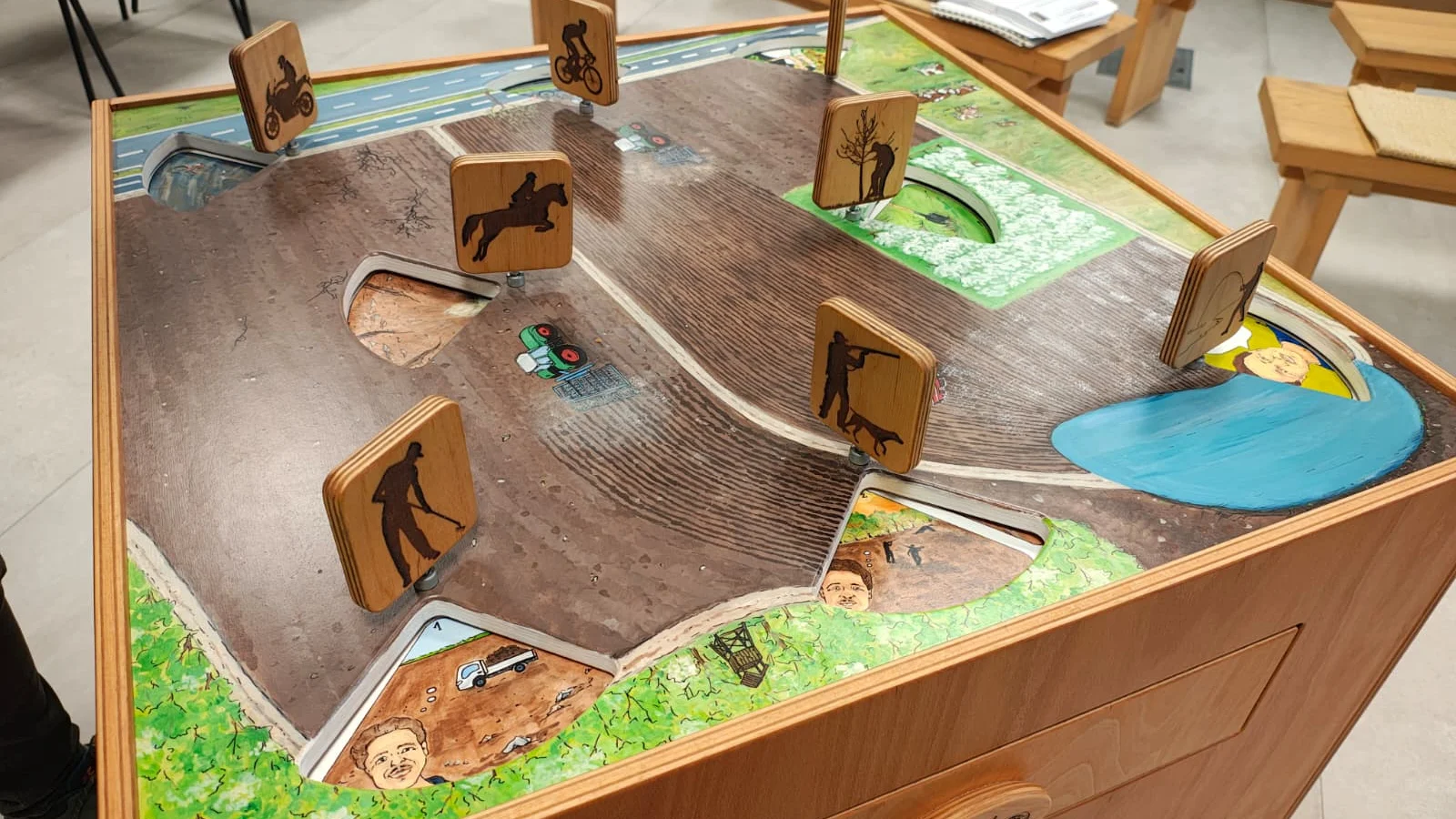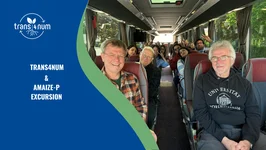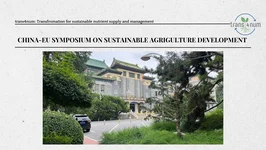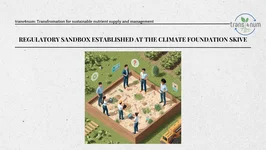| Communication team
As part of this year’s Hungarian trans4num events, partners and stakeholders came together for a rich and hands-on Professional Day, organised by Széchenyi István University, Pisztráng Kör Egyesület (PKE), and PannonMag Agrár. The day offered a deep dive into both the scientific and educational dimensions of Nature-Based Solutions (NBS), taking participants from the field to the classroom to better understand how sustainable nutrient management can take root in real landscapes and in local communities.
Field Visit: Seeing NBS in Action at PannonMag Agrár
The morning began in a foggy, windswept field at one of trans4num’s Hungarian NBS test sites managed by PannonMag Agrár. Here, partners had the opportunity to observe how innovative nutrient management practices are being trialled at scale to improve soil health and crop resilience.
The site features three crop strips (8 ha each), each divided into conventional and NBS treatment areas. The NBS plots follow a three-year rotation (sorghum, durum wheat, and soybean) paired with chicken manure, while the conventional plots rely on artificial fertiliser.
The landscape itself tells part of the story: the soils of this region were shaped by historic Danube floods, resulting in variable soil types. The profile examined during the visit revealed a thick alluvial layer sitting atop dense clay, a combination that makes drought the dominant challenge. The clay layer limits water retention and root penetration, restricting plant access to deeper moisture and nutrients.
One of the most striking observations came from comparing root patterns in NBS versus conventional plots. In NBS-managed soils, plant roots penetrated well into the clay layer, while in conventional plots they remained confined to the upper alluvial soil. This deeper rooting is a promising indicator of:
- Improved drought resilienc
- Enhanced nutrient accessibility
- Slight increases in yield, already noticeable after just two years
These findings demonstrate how even small shifts toward nature-based farming can support long-term soil function, resilience, and productivity under increasingly unstable climate conditions.
From Field to Learning: Interactive NBS Education at Pisztráng Kör Egyesület Ecopark
In the afternoon, the group visited the Pisztráng Kör Egyesület (PKE) Ecopark, an inspiring centre for ecological education and community engagement founded in 1998. The Ecopark’s mission is to strengthen the connection between people and nature, promoting sustainable lifestyles and environmental stewardship.
The Ecopark features, amongst other activities, three outdoor soil profile displays, showcasing crops such as sorghum, black oat, and Alexandrian clover, that visually illustrate how roots interact with different soil layers. These displays set the stage for a deeper introduction to PKE’s innovative educational tools developed within trans4num.
One of the highlights of the visit was the presentation and demonstration of the NBS Tools, designed specifically to help farmers and young learners understand ecosystem functions and recognise soil health challenges.
The toolkit includes:
- Comic-style stories that explain NBS concepts through accessible narrative
- Interactive games and demo boxes that encourage hands-on experimentation
- Eight thematic units, each focusing on a distinct soil health challenge and its nature-based solution
This playful, narrative-driven approach brings scientific concepts to life, supporting farmers’ capacity-building while also inspiring the next generation of land stewards.
From walking through soil profiles in the field to exploring creative educational tools in the classroom, the event showcased the multifaceted nature of transformation, one that blends agronomy, ecology, and stakeholder engagement.
trans4num extends its warm thanks to all partners and participants who contributed to this dynamic and inspiring day.

